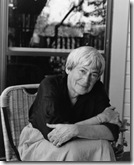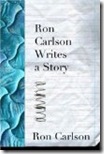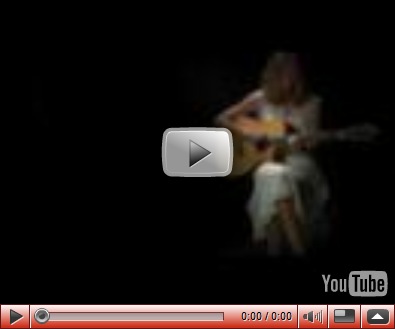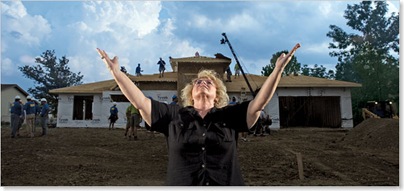From Proust Was a Neuroscientist by Jonah Lehrer:
Modern neuroscience is now discovering the anatomy  underlying Whitman's poetry. It has taken his poetic hypothesis--the idea that feelings begin in the flesh--and found the exact nerves and brain regions that make it true. Antonio Damasio, a neuroscientist who has done extensive work on the etiology of feeling, calls this process the body loop. In his view, the mind stalks the flesh; from our muscles we steal our moods.
underlying Whitman's poetry. It has taken his poetic hypothesis--the idea that feelings begin in the flesh--and found the exact nerves and brain regions that make it true. Antonio Damasio, a neuroscientist who has done extensive work on the etiology of feeling, calls this process the body loop. In his view, the mind stalks the flesh; from our muscles we steal our moods.
How does the brain generate our metaphysical feelings from the physical body? According to Damasio, after an "emotive stimulus" (such as a bear) is seen, the brain automatically triggers a wave of changes in the "physical viscera," as the body prepares for action. The heart begins to pound, arteries dilate, the intestines contract, the adrenaline pours into the bloodstream. These bodily changes are then detected by the cortex, which connects them to the scary sensation that caused the changes in the first place. The resulting mental image—an emulsion of thought and flesh, body and soul—is what we feel. It is an idea that has passed through the vessel of the body.
Over the course of his distinguished career, Damasio has chronicled the lives of patients whose brains have been injured and who, as a result, are missing this intricate body-brain connection. Although they maintain full sensory awareness, these patients are unable to translate their sensations into emotions. The pounding of the heart never becomes a feeling of fear. Because the mind is divorced from the flesh, the patient lives in a cocoon of numbness—numb even to his or her own tragedy.

Damasio's research has elaborated on the necessity of our carnal emotions. His conclusions are Whitmanesque. "The body contributes more than life support," Damasio writes. "It contributes a content that is part and parcel of the workings of the normal mind." In fact, even when the body does not literally change, the mind creates a feeling by hallucinating a bodily change. Damasio calls this the as-if body loop, since the brain acts as if the body were experiencing a real physical event. By imagining a specfic bodily state—like a fast heartbeat, or a surge of adrenaline—the mind can indue its own emotions.
One of Damasio's most surprising discoveries is that the feelings generated by the body are an essential element of rational thought. Although we typically assume that our emotions interfere with reason, Damasio's emotionless patients proved incapable of making reasonable decisions. After suffering their brain injuries, all began displaying disturbing changes in behavior. Some made terrible investments and ended up bankrupt; others became dishonest and antisocial; most just spent hours deliberating over irrelevant details. According to Damasio, their frustrating lives are vivid proof that rationality requires feeling, and feeling requires the body. (As Nietzsche put it, "There is more reason in your body than in your best wisdom.")
 “Eunoia is the shortest word in English containing all five vowels—and it means ‘beautiful thinking.’ It is also the title of Canadian poet Christian Bök's book of fiction in which each chapter uses only one vowel. Mr Bök believes his book proves that each vowel has its own personality, and demonstrates the flexibility of the English language.”
“Eunoia is the shortest word in English containing all five vowels—and it means ‘beautiful thinking.’ It is also the title of Canadian poet Christian Bök's book of fiction in which each chapter uses only one vowel. Mr Bök believes his book proves that each vowel has its own personality, and demonstrates the flexibility of the English language.” 
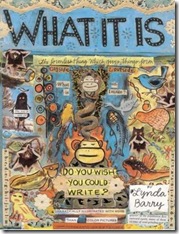 There ARE CERTAIN CHILDREN who are TOLD they ARE TOO SENSITIVE, AND there ARE CERTAIN ADULTS WHO believe SENSITIVITY IS a PROBLEM THAT CAN be FIXED in THE WAY crooked TEETH CAN be FIXED AND made STRAIGHT. AND WHEN THOSE TWO COME together YOU GET A FAIRY TALE, A KIND OF STORY WITH HOPELESSNESS IN IT.
There ARE CERTAIN CHILDREN who are TOLD they ARE TOO SENSITIVE, AND there ARE CERTAIN ADULTS WHO believe SENSITIVITY IS a PROBLEM THAT CAN be FIXED in THE WAY crooked TEETH CAN be FIXED AND made STRAIGHT. AND WHEN THOSE TWO COME together YOU GET A FAIRY TALE, A KIND OF STORY WITH HOPELESSNESS IN IT. 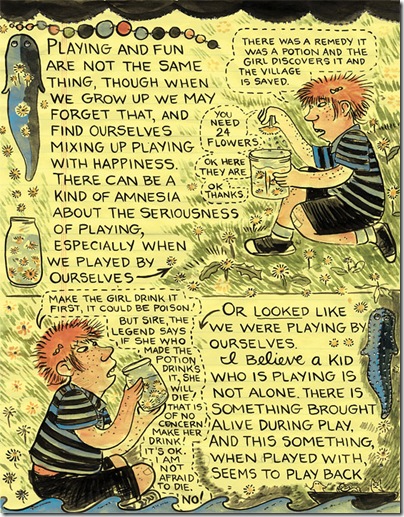
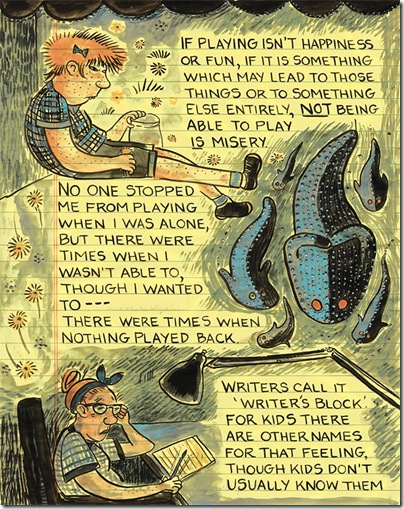

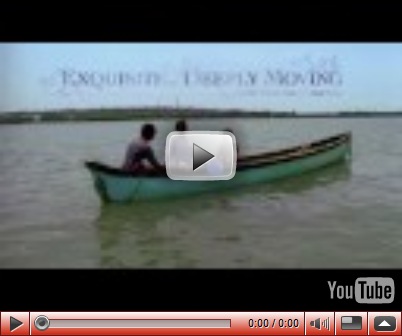
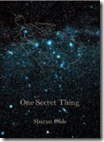
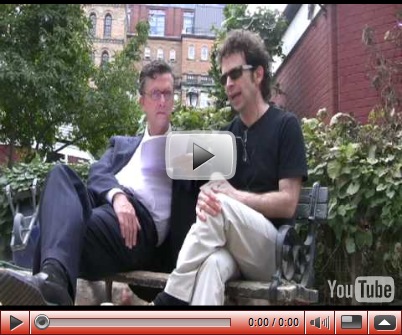
 Consider the rather startling fact that you will never know you have died. You may feel yourself slipping away, but it isn’t as though there will be a “you” around who is capable of ascertaining that, once all is said and done, it has actually happened. Just to remind you, you need a working cerebral cortex to harbor propositional knowledge of any sort, including the fact that you’ve died—and once you’ve died your brain is about as phenomenally generative as a head of lettuce.
Consider the rather startling fact that you will never know you have died. You may feel yourself slipping away, but it isn’t as though there will be a “you” around who is capable of ascertaining that, once all is said and done, it has actually happened. Just to remind you, you need a working cerebral cortex to harbor propositional knowledge of any sort, including the fact that you’ve died—and once you’ve died your brain is about as phenomenally generative as a head of lettuce.